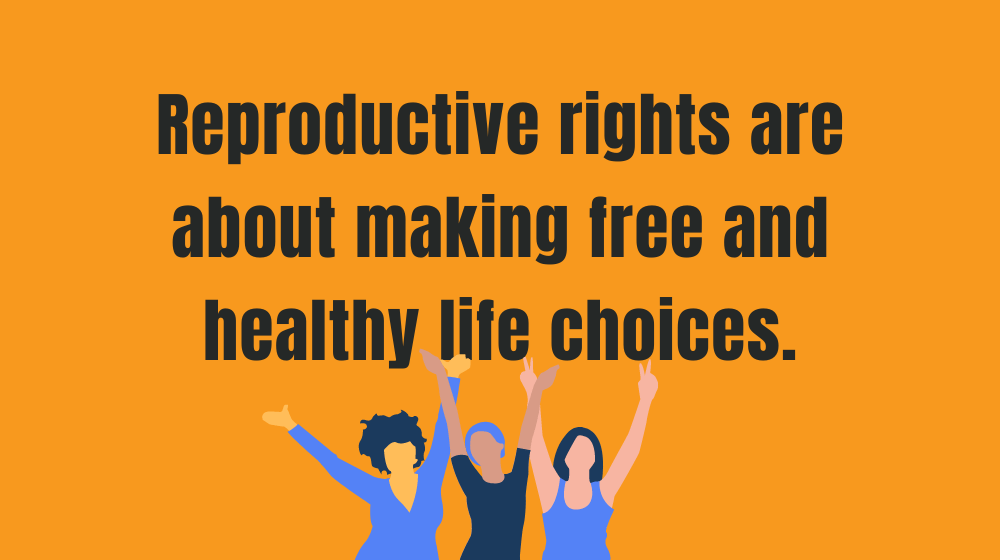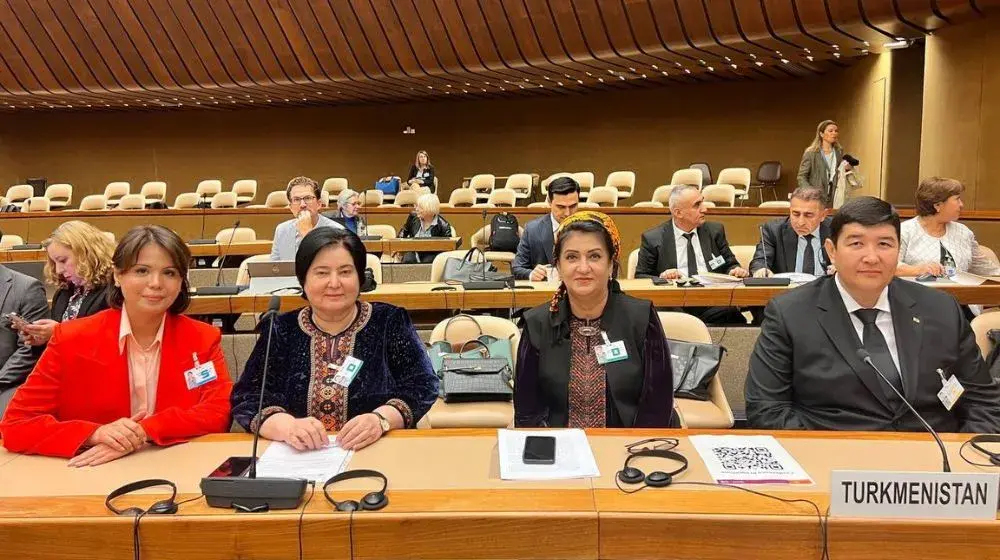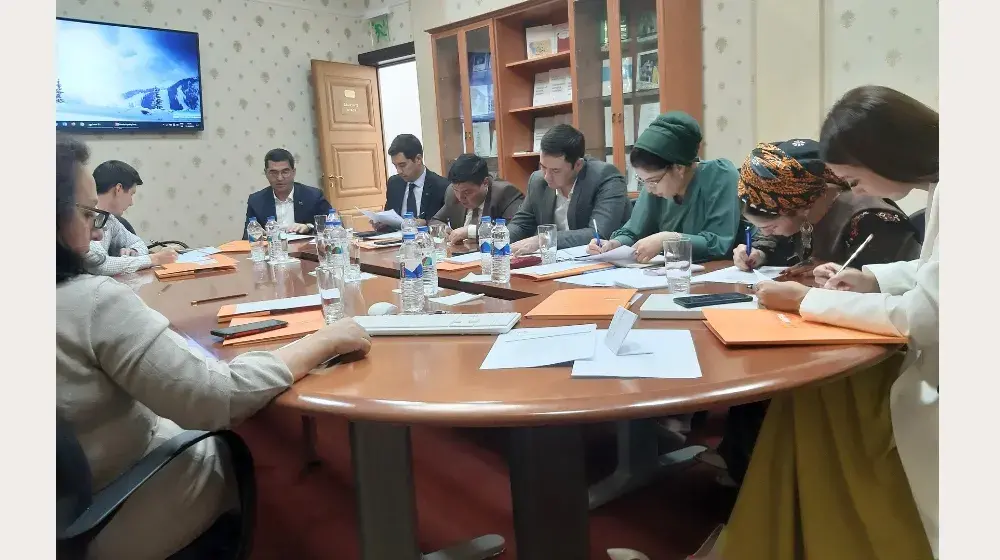Dr. Maya Ahmedova is one of the leading reproductologist of Turkmenistan who is currently providing reproductive health and rights counseling at one of the Hotlines on health and well-being of women and girls in the family. The reproductologist explained the meaning of the reproductive rights and the importance of family planning.
Q. What are reproductive rights?
A. Reproductive rights are the rights of men and women to reproductive health care, free decision-making regarding the birth of children in or out of wedlock, as well as social and medical assistance, including information and advice in this area, including:
- Independently decide when and how many children to have.
- The right to have a healthy child.
- The right to adopt a child.
- The right to access contraceptive methods.
- The right to a safe delivery, how and where you want.
- The right to artificial insemination.
- The right to services to prevent mother-to-child transmission of HIV.
- The right to access antenatal care (with or without a partner.)
- The right to decide how and when to engage in sexual relations.
- The right to take legal action against any sexual assault or harassment.
- Access treatment for sexual health problems and sexual health services.
- Receive education and upbringing, as well as accurate and objective information about reproductive health (childbirth, breastfeeding, prevention of HIV transmission from mother to child).
- Equal access to RH care, regardless of the socio-economic status.
- Receive information about family planning and make decisions about the use of contraceptives and their type.
- Feed your baby the way you want (and get accurate information about feeding options so you can make an informed decision).
This approach means protecting, recognizing and realizing rights for all people in all aspects of their lives.
Q. Do you think couples realize and understand that they have reproductive rights?
A. The protection of the reproductive health of the population is the most important state task, the implementation of which primarily depends on the awareness, literacy and interest of the population in this issue, the attitude of each specific woman, man and a family towards her health and the health of the unborn child, as well as the quality of medical care.
As in many other countries, the awareness of our population on reproductive rights needs to be improved, although for this a lot has been done for several years now, there are reproductive health centers, both for the female population and for men and adolescents. At the primary care in health homes, in addition to a reproductive specialist and a gynecologist, family doctors actively help inform the population about the provision of reproductive health services and rights - this is providing citizens with the opportunity to receive reliable information about their health, methods of contraception, competent advice on family planning, qualified medical care during pregnancy and childbirth, medical monitoring of the state of health, ensuring the possibility of diagnosing diseases, their treatment. To achieve the quality of the services provided, the participation of the woman, man, and teenager is very important. In general, taking care of one's health, including reproductive health and rights, should become the norm and a habit for every person and the whole society.
Q. Why is it so important for a couple to discuss and decide together when to have children and how many children they should have?
A. It is important to plan pregnancy before it occurs, in order to eliminate all risks and dangers, thereby increasing the chances of conceiving, developing and having a healthy child, therefore, many aspects of life, such as psychological, medical, economic, must be analyzed before pregnancy. A woman should approach the best time period of conception, focusing on her health status and circumstances for carrying a child.
Choice of a couple to have a wanted baby is an important factor in a successful pregnancy. Moreover, both parents should have a desire to have a child. It has been proven that an unhealthy psychological environment in the family often prevents the onset of the long-awaited moment.
Planning for pregnancy is no less important stage than the period of gestation itself, if there are doubts, fears, anxieties - now is the time to discuss them. She must make informed and mature decisions, since her comfort and family happiness depend on how her expectations coincide with reality. To test this, you need to honestly answer yourself a few questions.
- Does she want a child at this particular period of her life?
- Do external circumstances put pressure on her, for example, the desire of a partner, parents or society?
- Does she have hidden problems that she is trying to solve with the birth of a child?
- Is she at this period of her life with a person from whom she would really like to have a child?
- She must understand that this person will become a part of her life, that her partner also wants children and sees in her a person with whom she would like to spend the rest of her life?
- Does her partner share her aspirations?
- Is there any free space in her life for a child?
- Will they be able to allocate space in the apartment, time in the work schedule, energy for education and money to ensure a decent standard of living for the baby?
Of course, not every parent has everything they need to raise a child. Full financial stability may never come, and this is not a reason not to have offspring. However, this is a good reason to plan how, in the event of contingencies, they are going to deal with adversity. A woman should understand how she will cope with the first difficulties after the birth of a child, what they will do. Many other aspects of life are very important for a woman to analyze and think over, perhaps then the period of gestation and childbirth will be more productive and balanced, the woman can easily endure all unforeseen situations and psychologically overcome all barriers.
Q. The couple is ready for the kids. What's next? Why is it important for a couple to get tested / treated together?
A. Now many couples are beginning to realize that such a serious event as the birth of a new person must be carefully planned. In modern society, there is a tendency towards conscious and responsible parenting: a child is not just desired, both spouses are carefully preparing for his birth.
In obstetrics, there is the concept of pregravid preparation (this means preparation for pregnancy (lat. Gravida - "pregnant") - this is a complex of diagnostic, preventive and therapeutic measures aimed at preparing a married couple for full conception, carrying a pregnancy and giving birth to a healthy baby. Future parents understand that thanks to this you can reduce the risk of genetic diseases or congenital malformations of the child. Planning a pregnancy allows you to adjust the woman's body for the upcoming changes.
Pregravid preparation is recommended for absolutely all couples who dream of a healthy child. It begins at least three months before conception, and if there is a need for it, it is better for six months or a year. It helps to avoid most of the problems that can harm the health of the unborn child. Women are trained by an obstetrician-gynecologist and reproductologist, and, if necessary, by a urologist-andrologist and other narrow specialists for men.
Usually the preparation takes place in 3 stages.
Stage I - assessment of the health of future parents.
It is important to identify and minimize any risk factors that may interfere with conception or normal gestation (hereditary diseases, hormonal disruptions, problems with the woman's endocrine system). If during the examination or diagnosis the presence of any diseases is revealed, they must be treated before the planning stage of conception.
Stage II - preparation for the very conception.
Preparation includes the gradual abandonment of bad habits, normalization of weight (if necessary), the obligatory intake of certain vitamins and minerals to strengthen the reproductive system.
At this stage, it is important to adhere to a healthy diet and rational physical activity. Regular walks and light exercise improve blood circulation in the pelvic organs of men and women, thereby having a beneficial effect on the functioning of the reproductive system.
Proper nutrition is important not only for a woman, but also for a man, because the sperm maturation cycle lasts an average of three months. And for their growth, the body uses the "material" that comes with food. By eating right, a man provides a quality "building material" for the maturation of healthy and fast sperm.
A man needs to make sure that spermatogenesis proceeds without disturbances, in optimal conditions. Therefore, the vitamin for future fathers must contain folic acid for the male reproductive system to function properly. Women who are planning to conceive have a different task. They are designed to eliminate the deficiencies that are required for the normal course of ovulation and fertilization, otherwise conception. Vitamins and minerals at the stage of preparation for pregnancy should provide the body, which are especially urgently needed by the fetus in the first days and weeks after conception. After all, it is at this time that the main systems and internal organs of the fetus are laid. This is folic acid, with a lack of them, malformations of the neural tube of the pathology of the heart and brain of the fetus can occur.
Stage III - early diagnosis of pregnancy.
Pregravid preparation is considered successful if you are holding a positive pregnancy test. The final stage is early confirmation of pregnancy, screening tests, biochemical diagnostics and bridle monitoring.
The sooner a woman learns about the birth of a new life and the sooner she goes to the clinic after conceiving a child, gets registered, the better. Analyzes will help identify problems and pathologies during pregnancy, take the necessary measures in time.
In addition, it makes sense to prepare for future childbirth and the arrival of a new family member in advance. To do this, many couples are encouraged to attend childbirth preparation courses together.





